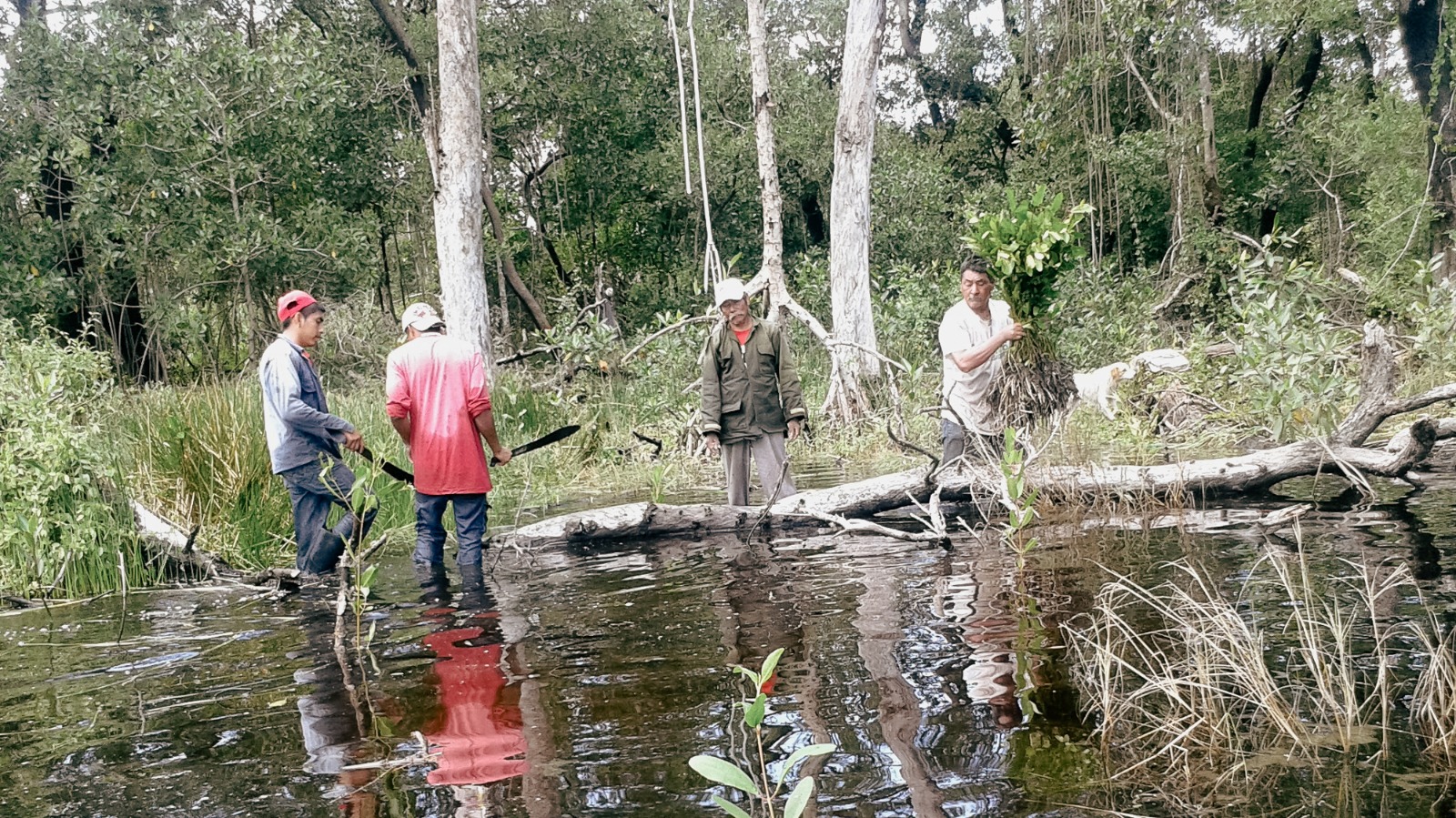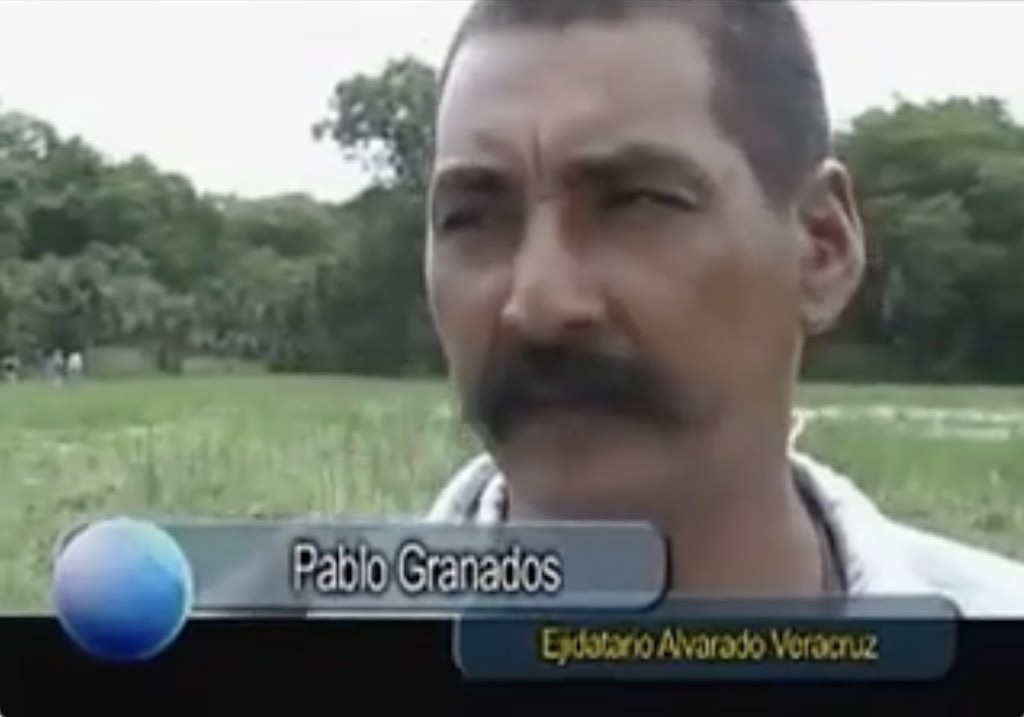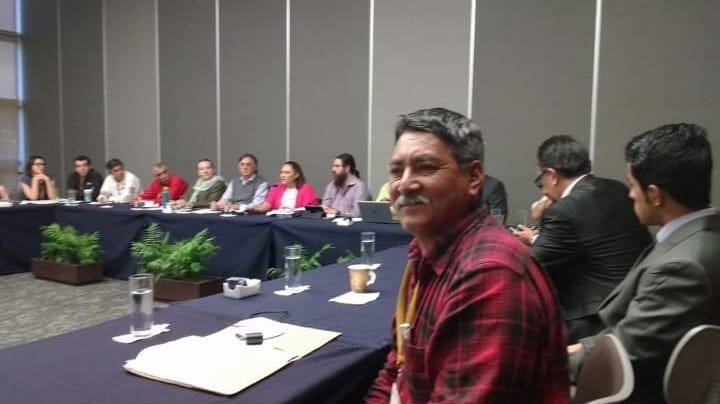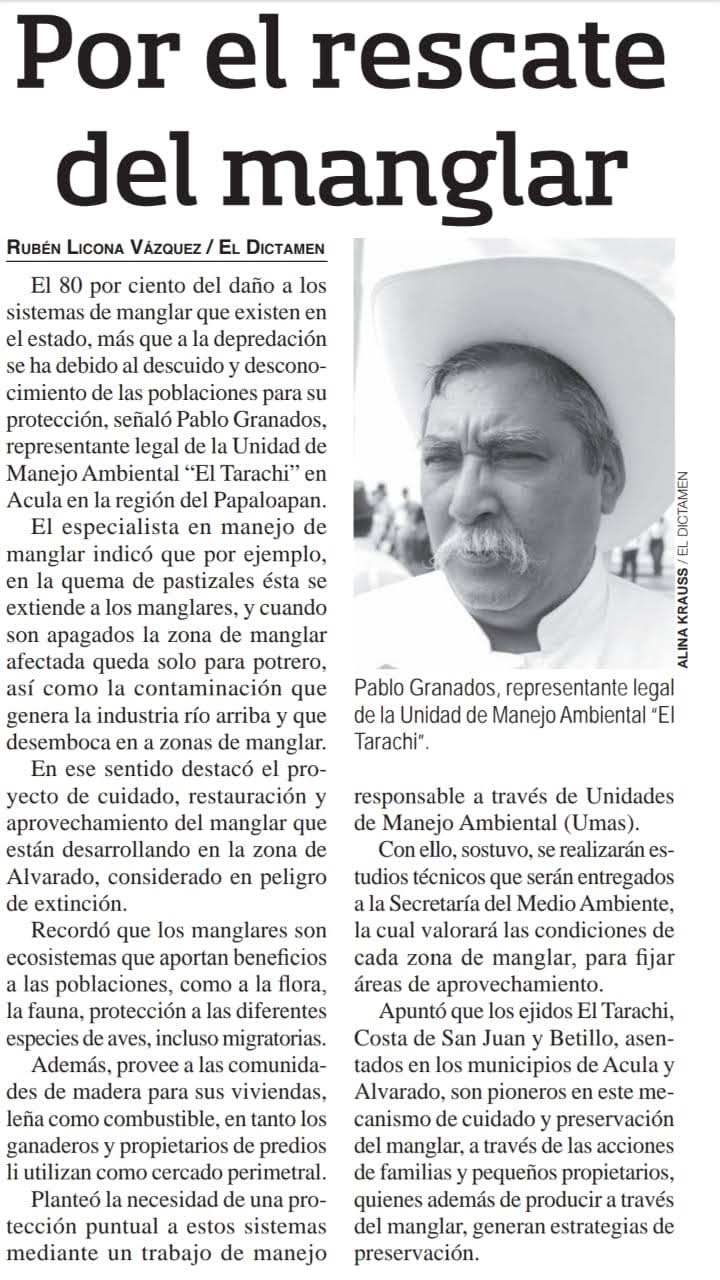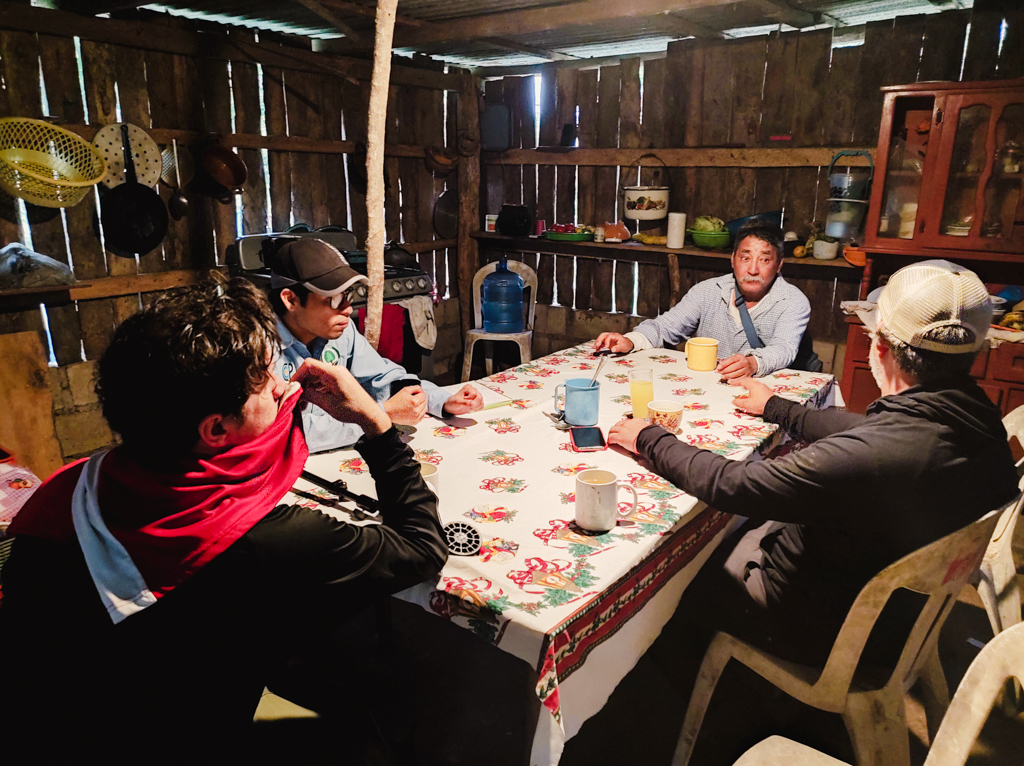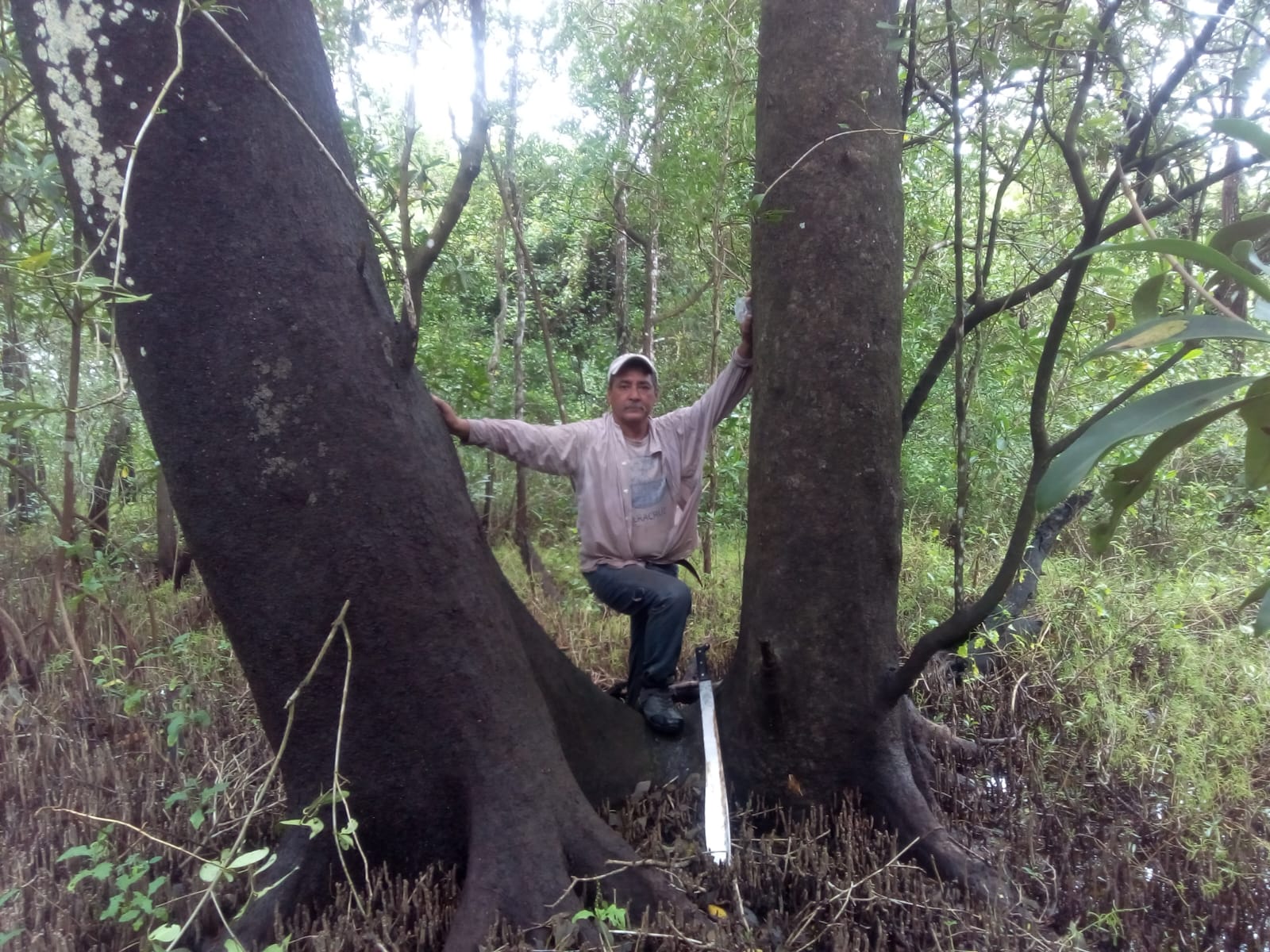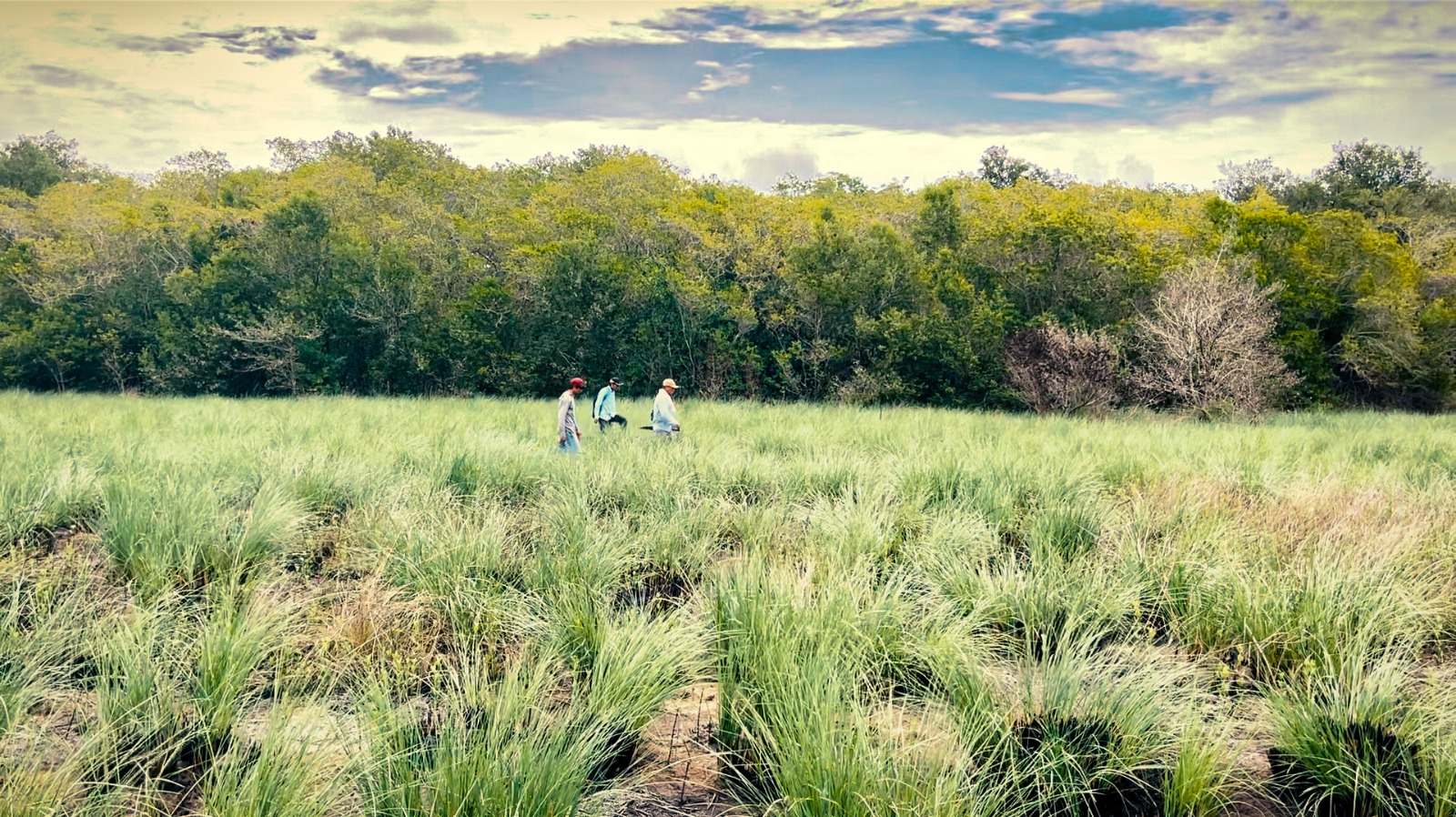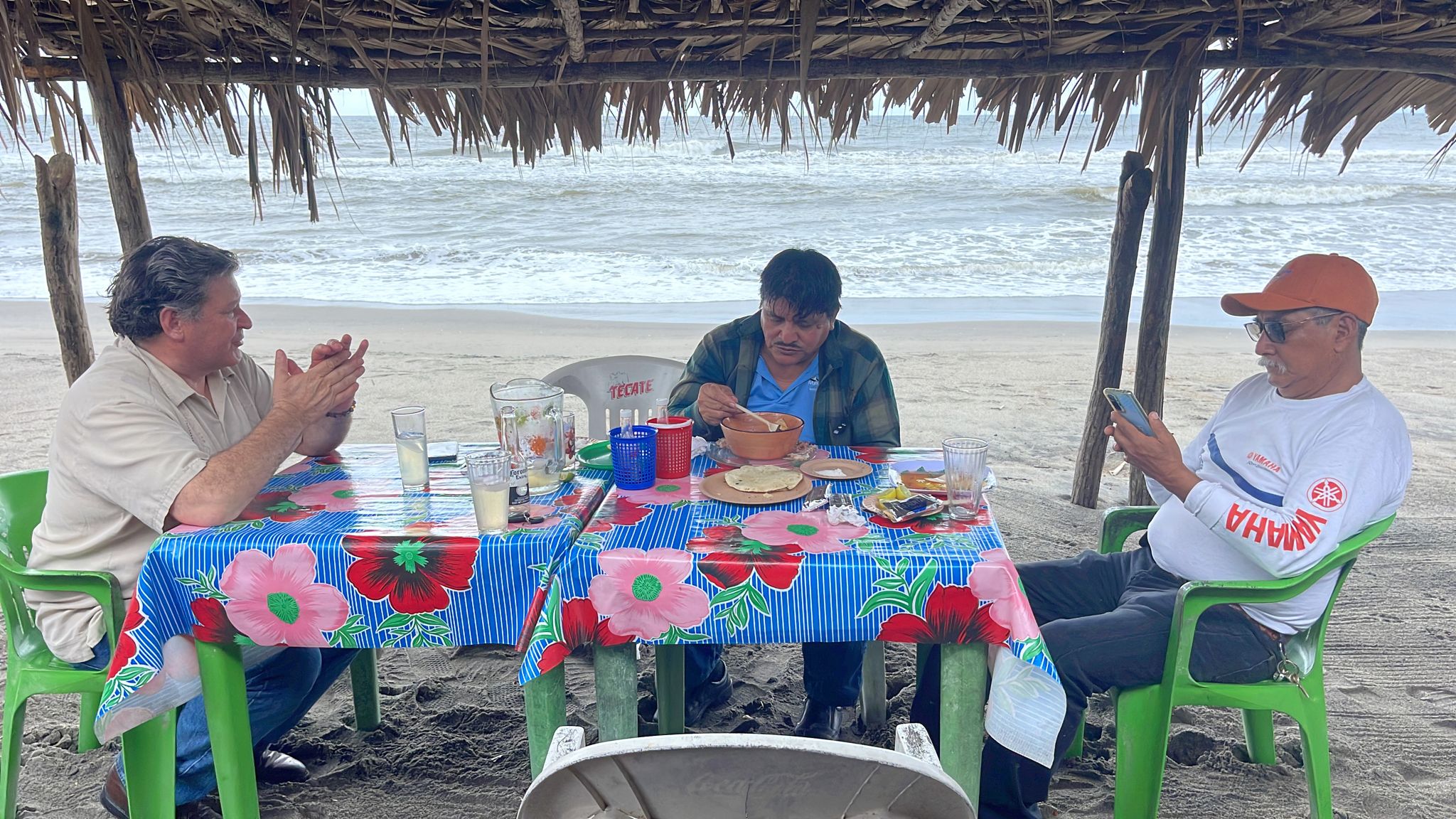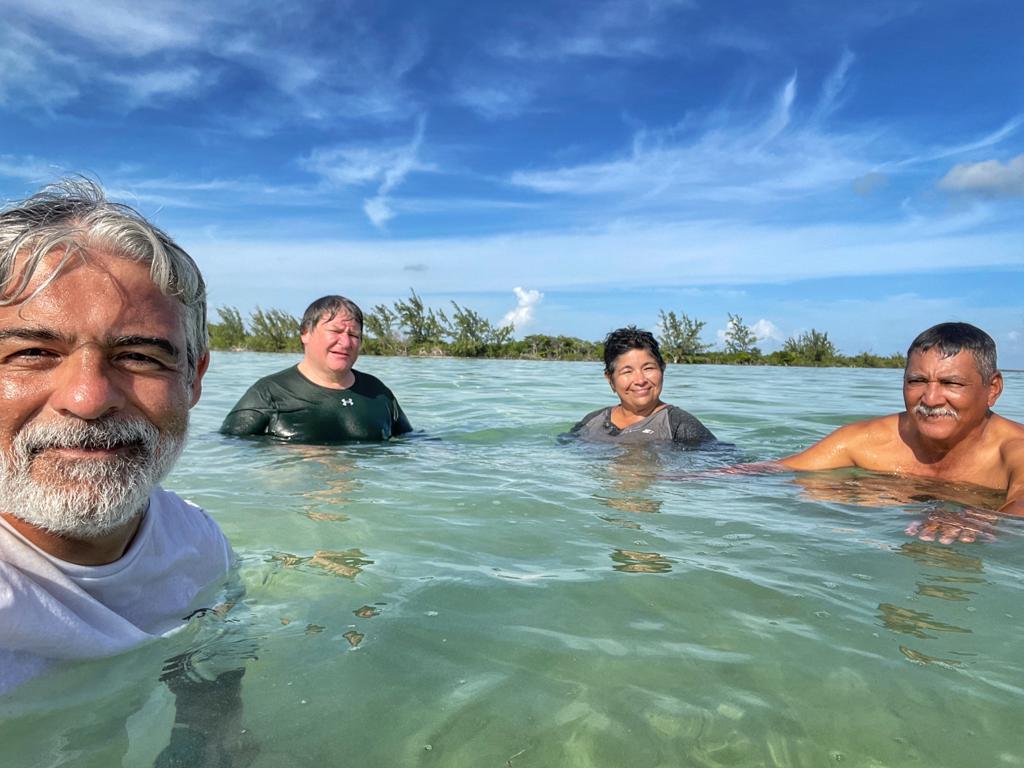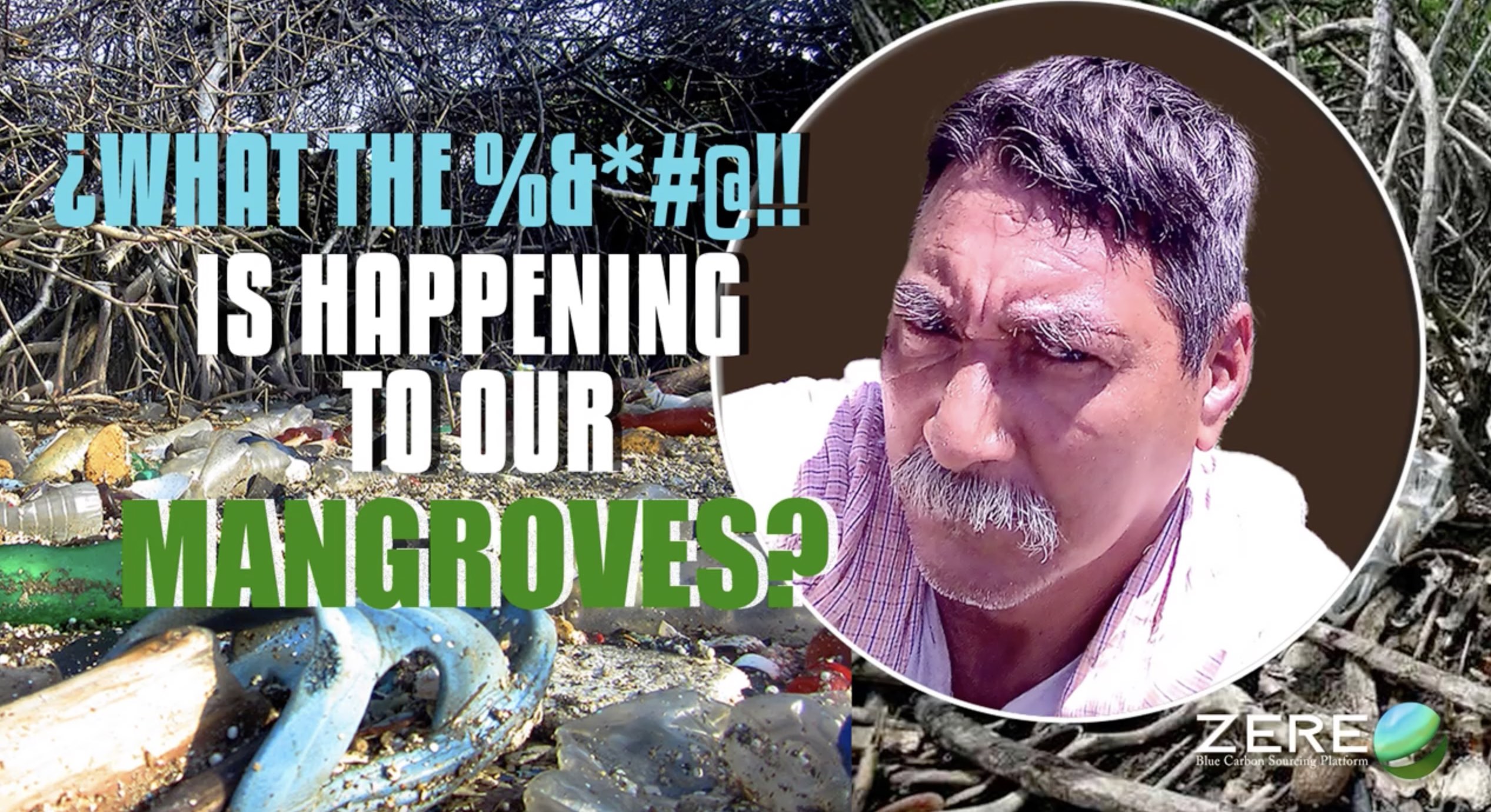1960, B. Rancho El Pesmon, Sierra de Misantla, Veracruz. He dedicated the early years of his life to livestock & agriculture.
1991 he joined the UGOCP (Unión General Obrera Campesina Popular -Popular Peasant Workers General Union), a Mexican peasant organization which seeks to improve the quality of life, employment and social development in rural Mexico. He served as part of the support staff for the organization's management.
1992 one of the founding members of the Ejido El Tarachi located in the Alvarado lagoon system in Veracruz, Mexico. The site is designated a RAMSAR Site. Ramsar Sites are wetlands of international importance that have been designated under the criteria of the Ramsar Convention on Wetlands for containing representative, rare, or unique wetland types or for their importance in conserving biological diversity.
1996 to date - Pablo Granados has been a consultant and speaker on environmental issues before the Mexican Chamber of Federal Representatives and Senators, the State Senate of Veracruz, and COP 2013, among others. He has worked on or led projects administered by non-profit organizations and government agencies throughout most of Central and Southern Mexico.
Working to rescue mangroves
Photo caption "Pablo Granados, legal representative of the Environmental Management Unit "El Tarachi."
Eighty percent of the damage to the mangrove systems that exist in the state, more than the depredation, has been due to the neglect and ignorance of the populations for their protection, said Pablo Granados, legal representative of the Environmental Management Unit "El Tarachi" in Acula in the Papaloapan region.
The mangrove management specialist indicated that, for example, in the burning of pastures, this extends to the mangroves, and when they are extinguished, the affected mangrove area remains only for pasture, as well as the pollution generated by the industry upstream and which flows into in mangrove areas.
In this sense, Pablo Granados highlights (the importance of the) management, restoration, and use of the mangrove forests project that is being developed in the Alvarado area, which is considered in danger of extinction.
He emphasized that mangroves are ecosystems that provide benefits to the local pueblos, as well as to the flora, and fauna, and for the protection of different species of local and migratory birds.
In addition, mangroves provide communities with wood for their homes, and firewood for fuel, while ranchers and landowners use it as perimeter fencing.
He raised the need for the specific protection of these systems through the (establishment) of Environmental Management Units (or UMAS as they are known in Mexico by their Spanish acronym).
With this, he said, technical studies will be carried out that will be delivered to the Ministry of the Environment, which will assess the conditions of each mangrove area, to establish areas of use.
He pointed out that the El Tarachi, Costa de San Juan, and Betillo ejidos, located in the municipalities of Acula and Alvarado, are pioneers in this mechanism of care and preservation of the mangrove, through the actions of families and small owners, who, in addition to producing through the mangrove, generate preservation strategies.
Pablo Granados Granados has worked or led projects administered by the following organizations and government agencies:
- - Ministry of Environment and Natural Resources (Secretaría del Medio Ambiente y Recursos Naturales, SEMARNAT)
- - National Forestry Commission of Mexico (Comisión Nacional Forestal o CONAFOR)
- - National Institute of Ecology and Climate Change. (Instituto Nacional de Ecología y Cambio Climático INECC)
- - Government of the State of Veracruz (Gobierno del Estado de Veracruz)
- - Environmental sustainability champion doing consultancy work and management of Mangrove Forest restoration/management projects in the states of Chiapas, Campeche, Quintana Roo, Tabasco, and Veracruz since 2013.
Mangrove forest in Pablo's land (Ejido El Tarachi). Pablo is giving Team Zere a tour of his land and the mangrove forest.
Pablo explores an area of his land where a part of the mangrove forest was illegally cut down & burnt.
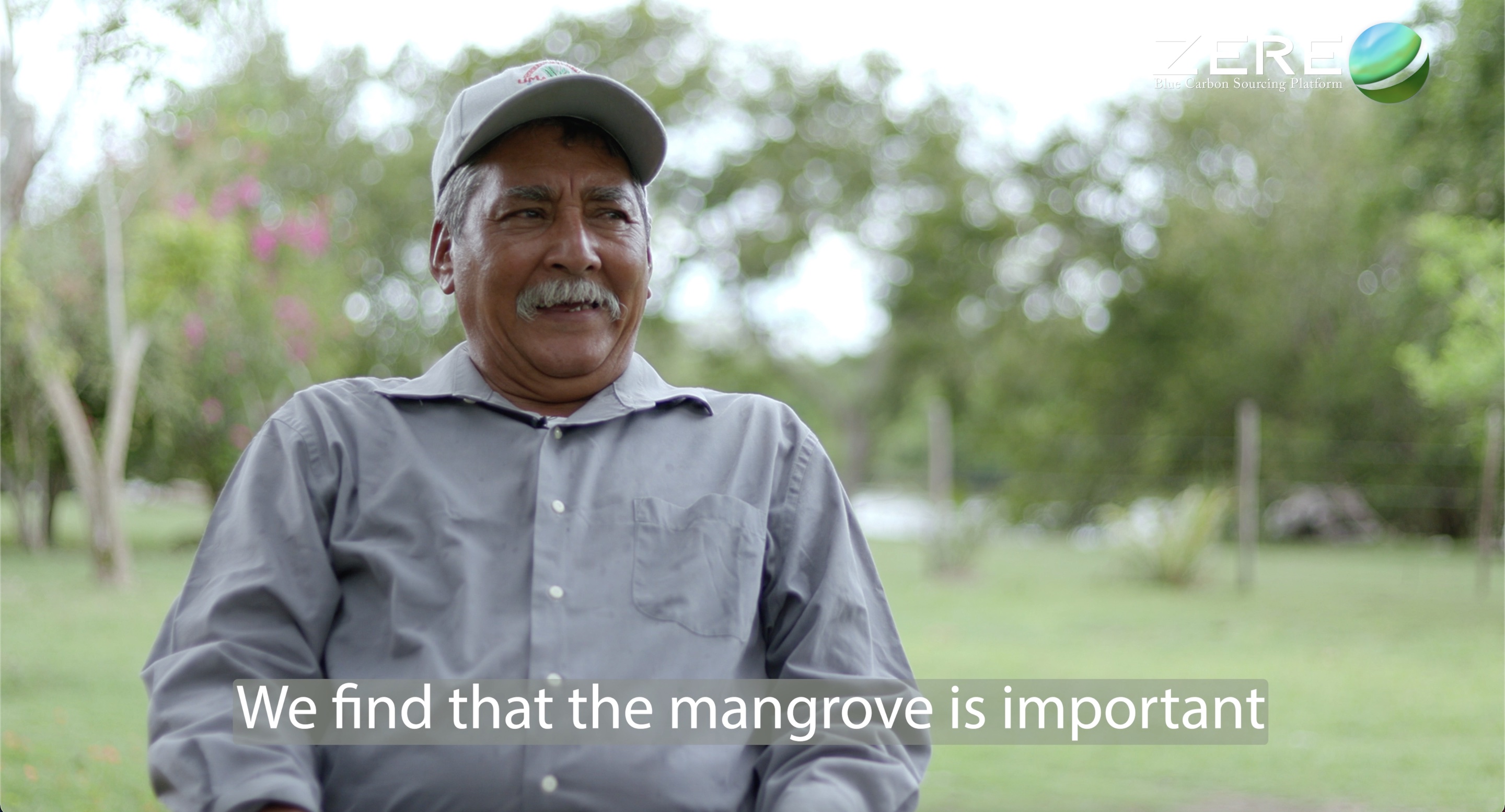
2022 - Pablo co-founds Zere with Alberto Osegueda and Eduardo Celis. In this interview, he speaks about the benefits of mangrove conservation and how it can help combat climate change.
Well, look, we found that the mangrove swamp is important to conserve because it provides many benefits to humanity. The people and most of the big cities, or even those of us who live within the ecosystem, are not up to date with the benefits that a wetland provides, but a wetland the benefits that it provides, for example, to all the fish that enter the process of growth. They come from the sea and enter the Laguna system and there they develop and protect themselves from large predators because they use it there as a refuge. Then they provide the service to migratory birds that come from other countries fleeing the cold, the frost. Here they arrive and here they settle and here they rest and survive. So, the wetland has to provide all those birds with food and shelter. So imagine the benefit it brings. Then it protects communities from hurricanes and winds. Also the waters of the rivers and lagoons, all the pollution that fell into them, because the mangrove also takes care of being a filter, like a filter that helps to make the water more purified, better. And the animals that live inside the wetland and even humans too, who use that water to bathe and clean our clothes, be it purer, be it better, not the kind of benefit that I think it can provide to humans, it's the wood. The wood is used for perimeter fences of land, but it is also used to make houses such as cabins or huts, and it could also be used as fuel for coal and to keep our food warm. - Pablo Granados
2022 Pablo attends a meeting with the Ejidatarios of Ejido Nuevo Bécal alongside Zere to learn about their remarkable sustainable forest management model. The Ejido is one of the largest in the region and runs one of the most successfully managed forestry and biodiversity conservation programs in North America.
Pijijiapan, Chiapas, October ‘22. Learning about the status of shrimping and Mangrove forests in one of the most important ecosystems in the Pacific.
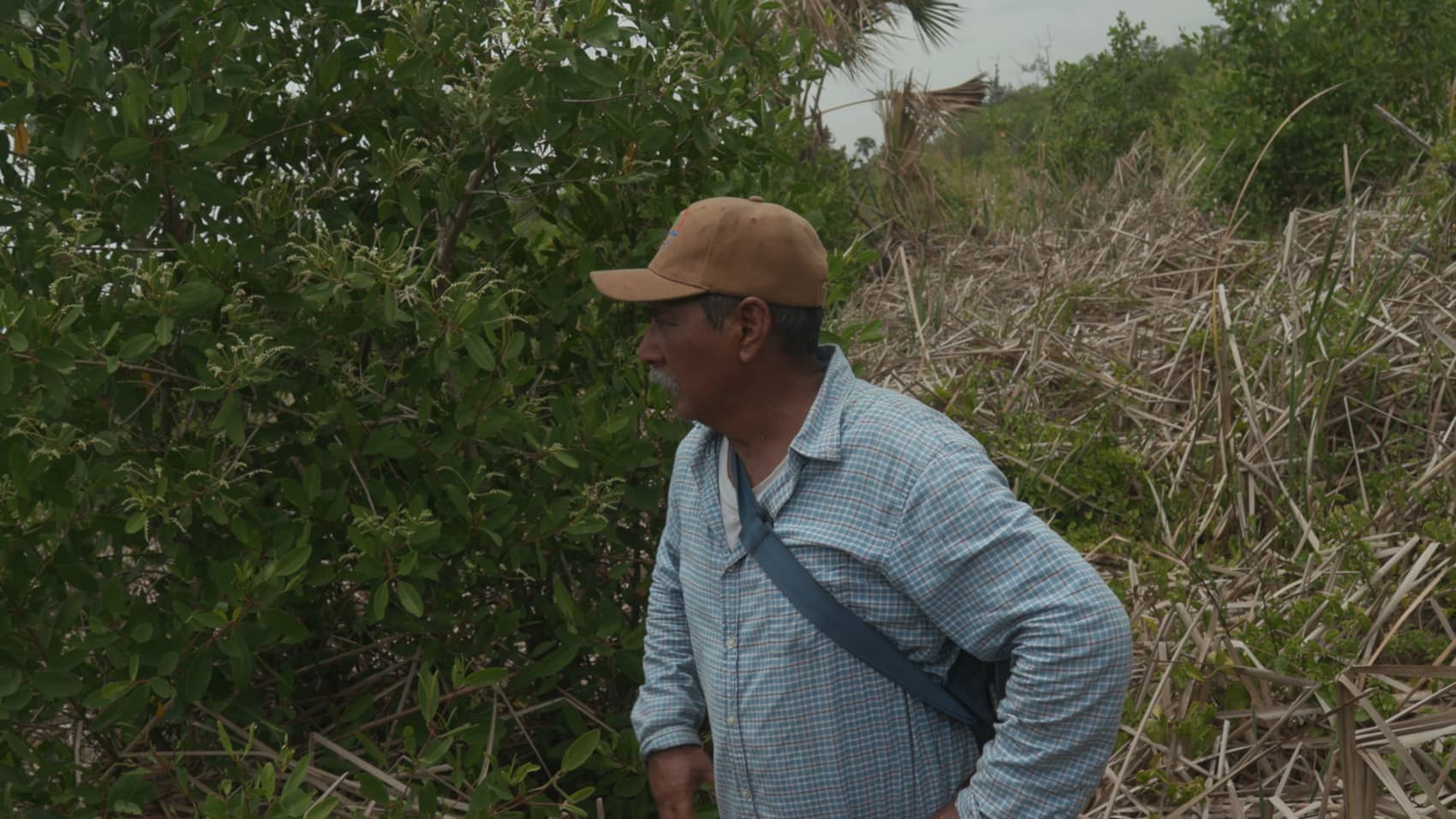
We are in this area where we are seeing a reforestation that we did in 2020 of white mangrove and it is already very nourished with flowers. This means that a few years after its reforestation it will already bear fruit and with those fruits this area will be fused with mangrove plants and in about four or five years we will have a very nourished forest to be able to take advantage of and continue conserving. - Pablo Granados
As you see in the video, Pablo has a daunting task ahead.
He can't do it alone!
He spent the last 30 years of his life fighting for us to have clean air to breathe. Help Pablo to start preserving your future.


